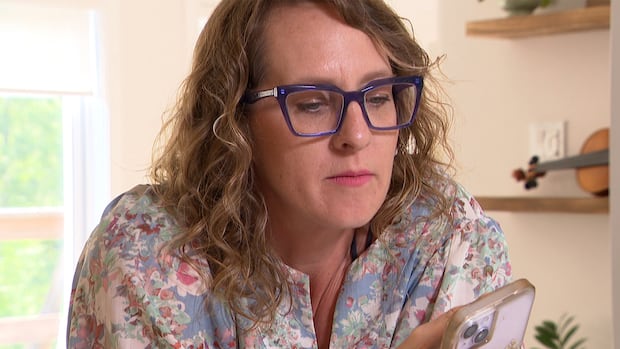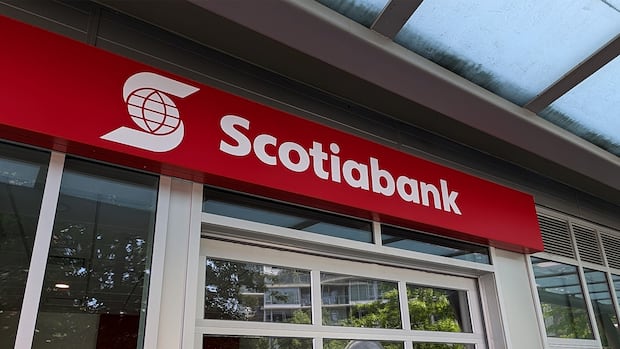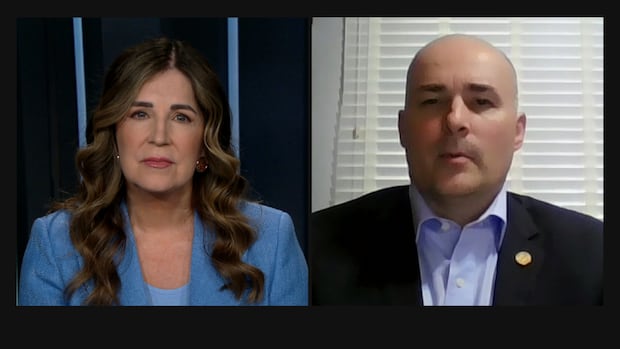Canada’s big banks, police, major telcos and the federal government have joined forces to protect Canadians from the growing scourge of financial scams.
Called the Anti-Scam Coalition, the initial plan of attack is an educational campaign set to launch next month.
But several victims of bank fraud and industry experts told CBC News they feel the coalition’s efforts fall short, because it doesn’t address refunds for the victims.
CBC News has reported several recent stories about victims of bank related phone scams who’ve lost thousands of dollars and were denied compensation.
“Awareness campaigns are important, but they only go so far,” said Jessica Fraser of Timmins, Ont., who lost $10,000 in a TD bank scam in June. TD Bank, which is listed as a “champion” on the coalition’s campaign website, refused her request for a refund.
“They’re supposed to be the gatekeepers of my money and I trusted them to safeguard me,” she said. “Instead, I’m left carrying the burden.”
 Jessica Fraser of Timmins, Ont., lost $10,000 in a phone scam involving her TD bank account. She says she feels the bank is partly responsible for her financial loss. (Submitted by Jessica Fraser)
Jessica Fraser of Timmins, Ont., lost $10,000 in a phone scam involving her TD bank account. She says she feels the bank is partly responsible for her financial loss. (Submitted by Jessica Fraser)
Cybersecurity expert Claudiu Popa says he’s skeptical the Anti-Scam Coalition will bring change, as he has yet to see a concrete plan of action. He also argues that an anti-scam campaign involving the big banks can’t ignore the refund problem.
“I think there’s a missing component to this,” he said. “That missing component, that elephant in the room is what’s actually being done for consumers.”
Coalition chair Anthony Ostler said in an email that the coalition aims to co-ordinate efforts to stamp out the scammers — before they steal Canadians’ cash.
Ostler, who is also the CEO of industry group the Canadian Bankers Association, said the planned education campaign will offer people “tools and tactics” they can use to protect themselves from fraud.
WATCH | RBC customer on the hook for $14K after bank investigator scam: 
RBC customer on the hook for $14K after bank investigator scam
RBC told a customer she’s responsible for $14,510 after she was the victim of a scam, where fraudsters pose as bank or other fraud investigators, even though the customer says RBC called her to flag the activity in her account. RBC says it is still investigating the matter. [Clarification: A previous version of this video rounded up the amount Plett lost in the bank scam. It has been updated to be more precise.]
But Popa suggests the coalition was created to improve the reputation of big banks — after many victims who’ve been refused refunds have gone public with their cases.
“Banks are having a lot of trouble with customers making a big stink,” he said.
Fraser’s story
Fraser turned to the media after she felt TD unfairly denied her request for compensation.
Her ordeal began when she got a call in June from a man who said he was with the TD fraud department. He told Fraser someone was trying to transfer $9,000 from her bank account to buy Bitcoin and that it was “very urgent.”
“I just remember feeling really panicked,” she said.
The fraudster told Fraser she needed to safeguard the cash in her account — $10,000 — by moving it to a new TD account. He then helped her set up an e-transfer contact in her name so she could, he said, send the money to herself until the account was set up. He also told Fraser the security question and password to use for the e-transfer.
Shortly after the call, Fraser found she hadn’t in fact sent herself the money. Instead, it had vanished.
“It’s devastating,” said the single mother. “This is my nest egg.”
Fraser feels TD shoulders some of the blame.
LISTEN | Do banks have to reimburse clients who fall victim to scams?
The CurrentYou’ve been scammed. Does your bank need to reimburse you?
Canadians lost a staggering $647 million to fraud last year. And a lot of those scams involve money taken fraudulently from Canadians’ bank accounts and investments. Melissa Plett was scammed out over more than $14,000. She tells us what happened and shares her warnings for other Canadians. Then we talk to technology journalist and analyst Carmi Levy who says banks can do more to protect your money — and to reimburse you if you’ve been scammed.
The fraudster had initially told Fraser to transfer $3,000 — her e-transfer limit. To move the rest, he said he’d conference in another TD department, so she could request that her account’s limit be raised.
Fraser says the scammer then connected her by phone to the real TD bank — while he silently remained on the line.
Fraser says she told the legitimate TD rep that she needed to raise her e-transfer limit, because her account had been compromised. A transcript of the call the bank provided Fraser, which appears to be incomplete, shows her stating to the TD representative, unprompted, “Apparently the fraud department — so yeah.” There’s no indication that the bank’s rep reacted.
Fraud mention should’ve raised concern: expert
Popa says Fraser mentioning “fraud” should have raised a red flag for the TD rep.
“Banks have a duty of care,” he said. “Even a simple clarification could have disrupted the scam.”
Fraser agrees, so she asked TD to reimburse her the $7,000 she was tricked into transferring after speaking with the legit TD representative. She escalated her case twice, but to no avail; at the final level, the bank told her in a letter she was liable for all her lost cash, because she authorized the e-transfers.
WATCH | Scotiabank holds customer responsible for nearly $20k lost in scam: 
Bank blames customer for $20K in credit card fraud | Go Public
A Scotiabank visa cardholder was left on the hook for $20,000 in charges he didn’t make, even though an expert told CBC’s Go Public there wasn’t evidence to blame the customer.
The bank also said in the letter that the TD rep she spoke with by phone had read her a disclaimer about only sending e-transfers to people she knows and trusts.
Fraser says the call dropped before she heard the disclaimer, and that she thought she was sending the e-transfers to herself.
“The fact that they’re refusing responsibility … it’s insulting,” she said. “They should have some kind of accountability.”
Timmins Police told CBC News it has charged someone in connection with Fraser’s scam.
CBC News informed TD about the charges. The bank stood by its decision. “The matter was assessed objectively and in accordance with our policies and procedures,” said spokesperson Ashleigh Murphy in an email.
The bank did not answer questions about its involvement in the Anti-Scam Coalition.
Rules on refunds
Canada offers some protections for victims of credit and debit card fraud. But there are currently no legislative requirements for banks to reimburse customers for fraudulent bank account transactions, Finance Canada told CBC News.
Montreal-based consumer advocacy group, Option Consommateurs, is currently helping dozens of scam victims — all seniors in Quebec — fight for refunds from their banks.
Sylvie De Bellefeuille, a lawyer with the group, argues the Anti-Scam Coalition’s efforts are insufficient, because scams will never entirely go away, and the victims shouldn’t be left destitute.
“Scammers will change their scheme, will get more sophisticated schemes,” she said. “We do believe that banks should be held more responsible … and ultimately reimburse the consumers.”
WATCH | Bank blaming you for losing money to fraud scams? Expert shares protection tips: 
Hit by fraud, but the bank’s blaming you? How to protect yourself
CBC News reporting reveals that banks are increasingly blaming customers for falling victim to fraud and errors involving their accounts. The National’s Erica Johnson asks cybersecurity expert Claudiu Popa to break down the current risks and what Canadians need to know to protect their money.
Both De Bellefeuille and Popa say Canada needs to adopt better protections for victims.
Last year, the federal government held consultations on proposed changes to strengthen protections that include requiring banks to reimburse scam victims for most of the funds stolen from their bank accounts, regardless of how their money was accessed.
Finance Canada told CBC News in an email that further details on the government’s plans will come “in due course.”
Read here for tips on how to protect yourself from financial scams.

